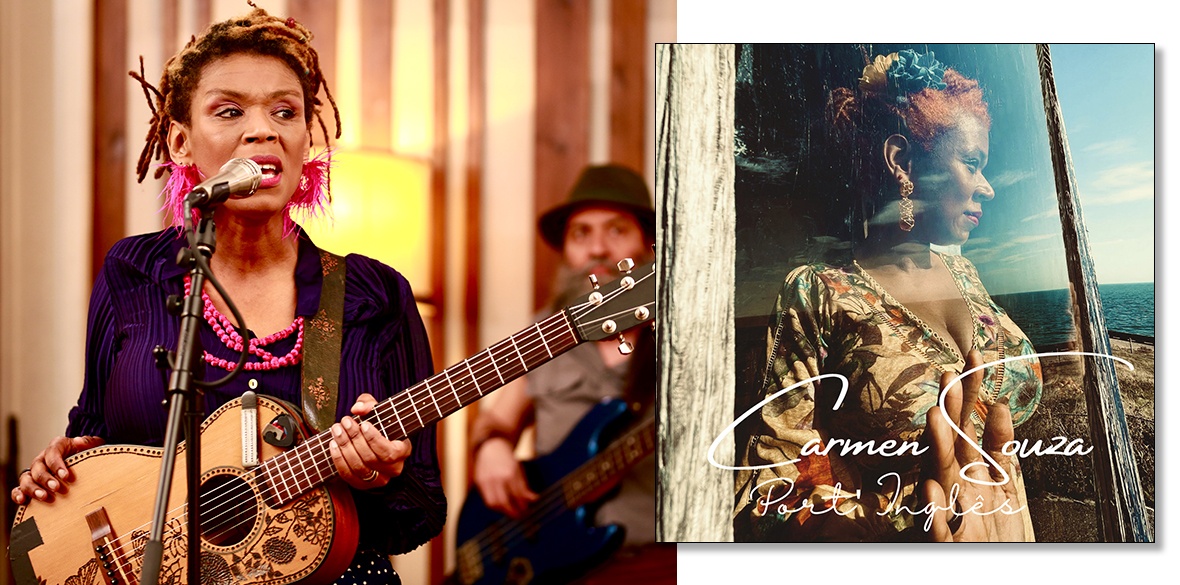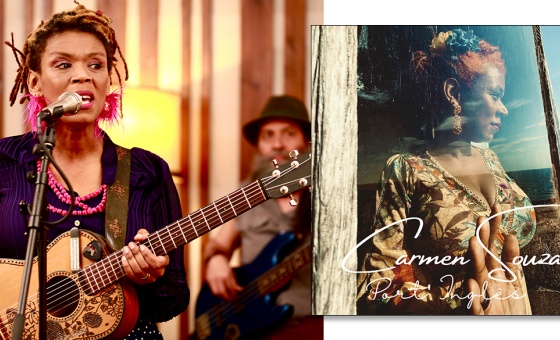This is the last article you can read this month
You can read more article this month
You can read more articles this month
Sorry your limit is up for this month
Reset on:
Please help support the Morning Star by subscribing here
EARLY British imperialists like Francis Drake and Walter Raleigh kidded history by profiling themselves as “explorers.” Here’s a brilliant singer with her roots in Cape Verde, who, in her songs, often with an incisive wit and passion, explores their brutal pathfinding and exposes the origins of 400 years of colonial oppression.
Carmen Souza was born to Cape Verdean immigrant parents in Lisbon in 1981. Her father worked in shipping cargo, her mother was a housekeeper.
“There was a lot of music and singing around me at home,” she says. “My father played guitar, my mother sang and my grandfather played violin.”
“Growing up in Lisbon, I played my father’s many Cape Verdean records, so all that was the sound of my childhood, a full immersion in the culture of the islands. I ate the food, spoke the Creole and listened to traditional music. It was all passed on to me naturally.
“My dad didn’t have many singing records, except for songs about independence and Amilcar Cabral, father of our nation. Then he bought some Cesaria Evora albums. The power and beauty of her voice was incomparable, and hearing her made me want to search for my own voice.
“Our Creole language is very musical and I like to mix all the islands’ different accents. Creole itself is an instrument of expression, and I use different island Creoles to express different or more profound emotions. And because I didn’t grow up in Cape Verde, my own Creole is very personal.”
Carmen moved to London in 2008. “Experience here has given me so many things as an artist, access to different cultures and ways of life. London is a melting pot and a fast-paced city that never stops. So I had to find my own pace, but it's becoming harder to live here. More and more there’s a big divide between the wealthy and poor, with people working at two or three jobs to earn a bare minimum and rarely spending time with their families. Isn’t this a form of slavery too?”
In her album, Port’Ingles, she sings of a duality in the history of the relationship between Britain and Cape Verde. Her opening song, St Iago, tells warmly about the time Darwin spent in Cape Verde in 1832, after his ship The Beagle set sail from Woolwich Dockyard. That’s followed by Pamadi, telling of the “chains and whips” of imperialism and, for the few, the colonial “prosperity that is stained with blood and pain” of the many.
“The imperialist perspective was always there,” she reminds me. “We grew up hearing stories of Sir Francis Drake [the theme of her song Francis Drum], how he was a hero of Britain. But in Cape Verde he is known for piracy, pillage, rape and arson. We all need to decolonise our minds so we can take informed steps to a better future.”
Her love and joy with language comes out humorously yet ruefully in her song Ariope! as she remembers how phrases of English found their way into Cape Verdean Creoles.
“I am passionate about languages. I love to explore different intonations and how our Creole has incorporated anglicisms. Growing up speaking Creole. I always heard the word ‘Ariope!’, but I never knew its imperial beginnings, derived from ‘Hurry up!’ and the orders given to men working under scorching temperatures, making them work as if they were machines.”
Her songs and tunes dance with their rhythms and have a powerful jazz heartsblood.
“Jazz influenced me because it means, first and foremost, freedom. I was amazed by its musicians’ individuality and dedication: Thelonious Monk’s personality and creativity; the pain in the voice of Billie Holiday which ultimately shapes her sound; Horace Silver with his Cape Verdean origins in his groovy piano playing; Ella Fitzgerald’s voice bringing me joy; Bill Evans’ quiet piano fire and soulful melodies; Mingus’s daring arrangements.
“Jazz has taught me to use my voice not as a conventional singer, but as an instrument that can shape, shift and mould itself in the moment.”
Port’Ingles unifies the joy of the human voice with its huge power to educate and criticise for young and old. Did you know, for example, how Cape Verdeans raised money and resources to buy aircraft to fight against the Nazis in the second world war? Souza tells us all about it in her song Amizadi. Listen closely, dance gleefully and see what you think!
Port’Ingles is released by Galileo Records.












